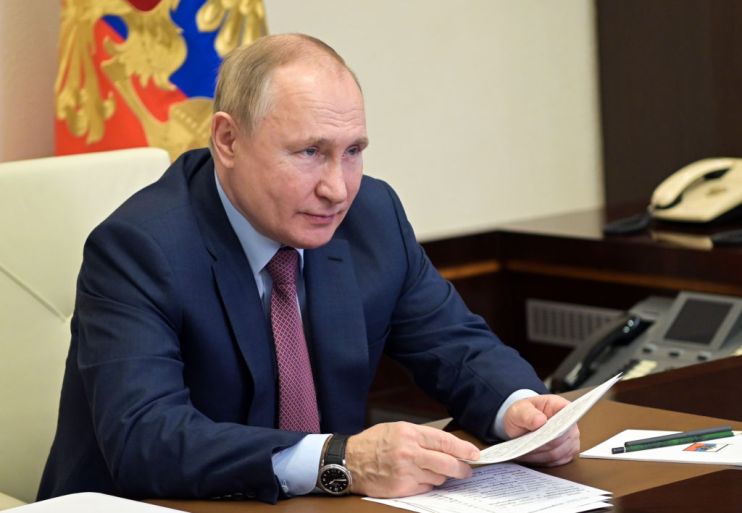Germany assured it will not have to pay for gas in roubles

Germany has confirmed it will continue to pay for Russian gas in euros or dollars, following a call between Chancellor Olaf Scholz and Russian President Vladimir Putin last night.
A German government spokesperson told Reuters that Putin has assured Scholz nothing would change for European partners,
In a phone call between the leaders, Putin reportedly said payments could be made in euros and transferred to Gazprom bank, which would convert the money into roubles.
“Scholz did not agree to this procedure in the conversation, but asked for written information to better understand the procedure,” said the spokesperson.
Italian President Mario Draghi also held talks with Putin yesterday, with the Russian president outlining similar plans to pay for Russian gas.
Last week, the Russian Premier announced plans to require rouble payments for energy exports to “unfriendly nations” from April 1.
The move is a retaliatory measure following Western sanctions on its economy.
Putin has ordered the Russian central bank and Gazprom to prepare the payment scheme by the end of today.
Emergency measures raise prospect of power rationing
The West has targeted Russian financial institutions, the central bank and oligarchs since the country invaded Ukraine last month.
However, the European Union (EU) has stopped short of energy sanctions.
While the US and UK have announced bans to Russian oil imports – the continent remains split over the issue with countries such as Netherlands and Germany opposing any new measures.
The EU currently relies on Russia for around 40 per cent of its natural gas.
Countries such as Germany are even more dependent – with 55 per cent of its gas imports coming from Russia.
Economy Minister Robert Habeck triggered the ‘early warning’ phase of an emergency plan yesterday to manage gas supplies.
The ‘early warning’ phase is the first of three potential stages, with the government able to trigger the “alarm” and “emergency” phases if the situation worsens.
This initial stage means that a crisis team from the economics ministry, the regulator and the private sector will monitor domestic imports and storage.
If supplies fall short, Germany’s network regulator can ration gas supplies, with industry being first in line for cuts.
Germany is not the only country that brought in emergency measures – with Austria also taking the potential first steps towards rationing.
It relies on Russia for 80 per cent of its natural gas supplies.
Meanwhile, Netherlands has advised consumers to reduce energy usage – but has not committed to any emergency plans yet.